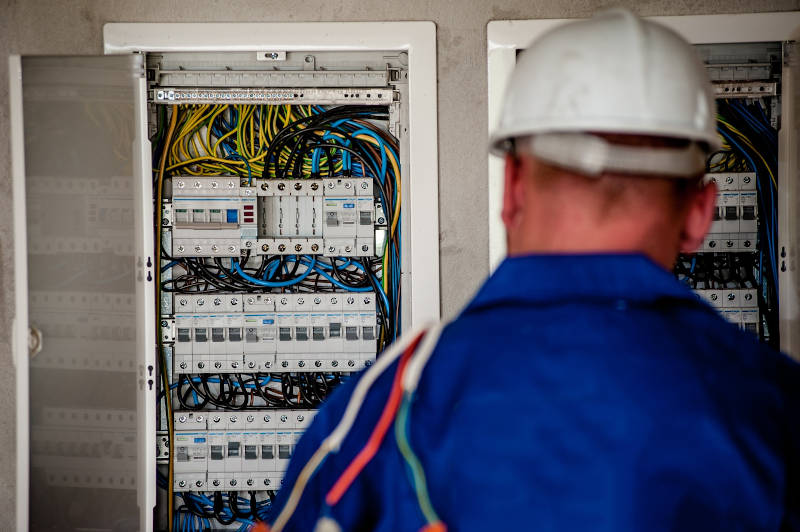Commercial electricians are some of the unsung heroes of the business world: They keep the lights on and WiFi working. So when you need one, how much does it cost to hire them? The answer is: “It depends.” Commercial electricians don’t charge a flat fee, and the requirements by the state for different permits and licenses will have a direct impact on cost.
Ultimately the cost of a commercial electrician is determined by:
- What level of expertise you need
- The tasks of the job
- The permitting required, including TWIC cards
What is a Commercial Electrician?
When most people think of an electrician, one that specializes in residential services is what comes to mind. While similar, commercial electricians specialize in larger systems that power commercial buildings instead of residential ones. Where a residential electrician may set up the wiring for a private home, a commercial electrician will set up the systems for office buildings, grocery stores, movie theaters, and more.
The scope of the job is larger, and therefore commercial electricians require more and different training and licensing than residential electricians.
There are also different levels of electrician experience that correspond to the cost for jobs they may be hired to complete.
What are the Different Levels of Commercial Electrician Training?
All commercial electricians must have a high school degree, must have completed technical in-class training, and must have had on-the-job experience as an apprentice. These are the standard requirements for gaining a license as a journeyman.
Journeyman electricians are able to perform duties as electricians without direct supervision as well as duties that may be more complex than those of apprentices. They are guided by master electricians and typically work as part of a team.
Master electricians are able to complete more complex jobs and require a higher level of licensing than journeyman electricians. They can also apply for permits from local jurisdictions and hire electricians as part of a team. They usually have at least four years of experience, but some localities require more.
Independent electrical contractors are effectively the highest tier of electricians, and they can be involved in multimillion dollar projects and lead large teams of other electricians. These electricians operate as contractors as well as electricians and can therefore operate as a business and work for government and private clients. Contractors have their own set of licensing and regulatory standards that can contribute to a higher cost for a job.
State-by-state differences
The requirements and cost of licensing in the state, state payroll taxes, training to learn a state’s building codes and other specialized training and licensing vary across the country. Electricians needed for simple repairs may not need the experience and licensing of an electrician hired to install a system into a brand new office building.
The experience and training required for an electrician to be able to legally take the job will directly change how much they charge.
Electricians that work in multiple states may hold multiple licenses and could charge more the greater their experience and background.
Some states offer/require certifications for different types of jobs such as working on pools, HVAC, road systems or elevators. Depending on the job you hire for and whether your state requires a job-specific certification, the electrician may add a charge for needing that certification.
TWIC cards
Many electricians hold Transportation Worker Identification Credentials, or TWIC cards. These cards are required by the Maritime Transportation Security Act should someone be hired to work in a secure area on a national maritime facility or vessel. Jobs that require this level of credential may be more expensive.

